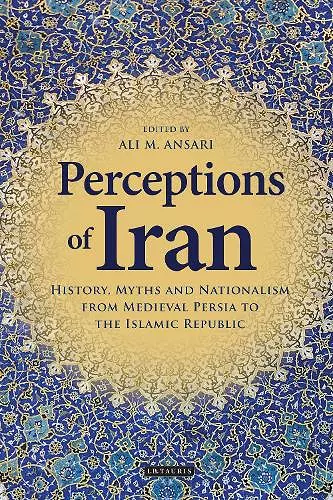Perceptions of Iran
History, Myths and Nationalism from Medieval Persia to the Islamic Republic
Format:Hardback
Publisher:Bloomsbury Publishing PLC
Published:28th Nov '13
Currently unavailable, and unfortunately no date known when it will be back

I.B.Tauris in association with the Iran Heritage Foundation
From the Sasanian to the Safavid Empire, and from Qajar Iran to the current Islamic Republic, the history of Iran is one which has been coloured by a rich tradition of myths and narratives and shaped by its wealth of philosophers, cultural theorists and political thinkers. Perceptions of Iran dissects the construction of Iranian identity, to reveal how nationalism has been continually re-formulated and how Iran’s self-perception has been moulded by its literary past.
Here, Ali M. Ansari gathers together a varied and wide-ranging account of the long history of Iranian encounters with the Western world, whether via the observations of Herodotus, or the knowledge – via the Old Testament – of Cyrus liberating the Jews from Babylon, or into the modern era when nineteenth and twentieth century interactions reflect the unequal power
relationship between Iran and the West. Perceptions of Iran also explores the salient elements in the country’s narrative which helped to form Iran’s identity, such as Ferdowsi’s creation of the Shahnameh – the national epic – the exquisite architecture of Safavid Isfahan or the unfulfilled promise of the Constitutional Movement in the early twentieth century. It offers analysis of the Qajar Shahs’ use of a mythical and dynastic past, as they drew on the narratives of Jamshid’s glory and Khusraw’s splendour in order to legitimise their rule. At the same time, it examines the ways in which foreign travellers
and diplomats understood and conceived of the royal courts of Safavid Persia.
As it covers 2,500 years of political and intellectual history, Perceptions of Iran ties together the diverse threads of Iranian experience that have underpinned the country’s social and cultural movements, spanning Mirza Agha Khan Kermani’s writing on Persian history and liberal nationalism, through to the strident anti- Western discourses of Seyyed Jamal al-Afghani, Jalal Al-e Ahmad and Ayatollah Khomeini. The book is therefore vital for researchers of Iranian history and
those interested in the use of myth in the construction of national identity more widely.
ISBN: 9781848858305
Dimensions: unknown
Weight: 547g
256 pages